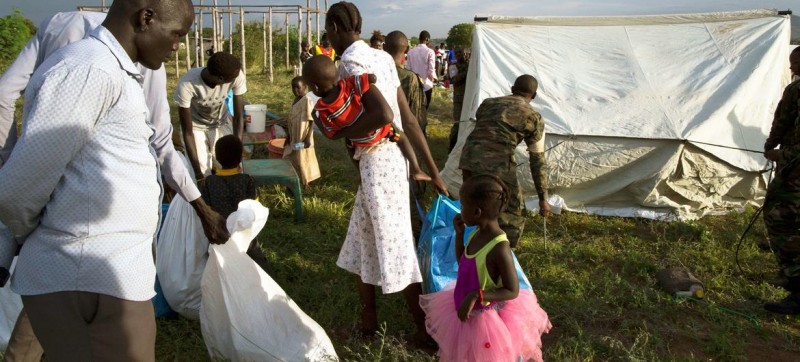The UN Mission in South Sudan (UNMISS) has helped humanitarians to successfully relocate hundreds of thousands of displaced people. On the eve of World Humanitarian Day, the UN Humanitarian Coordinator in South Sudan, called on Thursday for joint action to address the aid crisis in the country and end attacks against civilians and humanitarian workers. “It takes a village to raise a child. In the same way, it takes an array of partners to support crisis-affected people,” stated Sara Beysolow Nyanti. “We need urgent collective efforts to help the vulnerable population in South Sudan”. The Humanitarian Coordinator paid tribute to the aid workers, communities, local authorities and first responders who provide life-saving assistance to thousands of people in dire humanitarian need. “I commend the humanitarian workers and all those risking their own lives to alleviate the suffering and save the lives of others,” she said.Lauding humanitarians
Five humanitarian workers have been killed in #SouthSudan in the line of duty since the beginning of 2022. Even one attack is too many. Attacking aid workers is a violation of international humanitarian law. They are #NotATarget #WorldHumanitarianDay pic.twitter.com/ftv1KshjFi
— OCHA South Sudan (@OCHASouthSudan) August 18, 2022
Dangerous place to work
South Sudan continues to be the most violent context for aid workers, followed by Afghanistan and Syria.
Since the beginning of the year, five humanitarian workers were killed there in the line of duty.
Across the country, aid workers – mostly national humanitarian workers – are affected by the impact of armed violence, bureaucratic impediments, and targeted violence.
From 1 January to 30 July, 232 incidents related to humanitarian access constraints were reported, with the highest being in Jonglei and Central Equatoria (states?), which account for 40 per cent of all reported incidents.
Security under threat
People across the country, especially women and girls, face many protection risks, including conflict-related and gender-based sexual violence, armed violence, and abductions.
These critical protection risks are compounded by rule of law and access to justice deficits.
“Impunity is a perpetuating factor and a driver of conflict and insecurity. There is an urgent need to bring perpetrators to justice. We need strengthened joint action, multidimensional dialogue, and engagement to address this,” stated Ms. Nyanti.
“All armed factions must immediately cease targeting civilians, humanitarian personnel and their assets. Impunity must end,” she added.
‘Tirelessly’ responding
As the crisis in South Sudan continues, the humanitarian community and partners each day step up to respond, including by providing food and livelihood support; health, nutrition and clean water; protection services; and emergency education to millions of women, children and men.
“I would like to highlight and honour the humanitarians, especially women, who work tirelessly on the frontlines in most difficult environment, trying to reach thousands of crisis-affected people,” said Ms. Nyanti.
“On this day, we come together to pay tribute to all responders supporting people in need of humanitarian assistance, and we should do so every other day”.




Comments are closed.